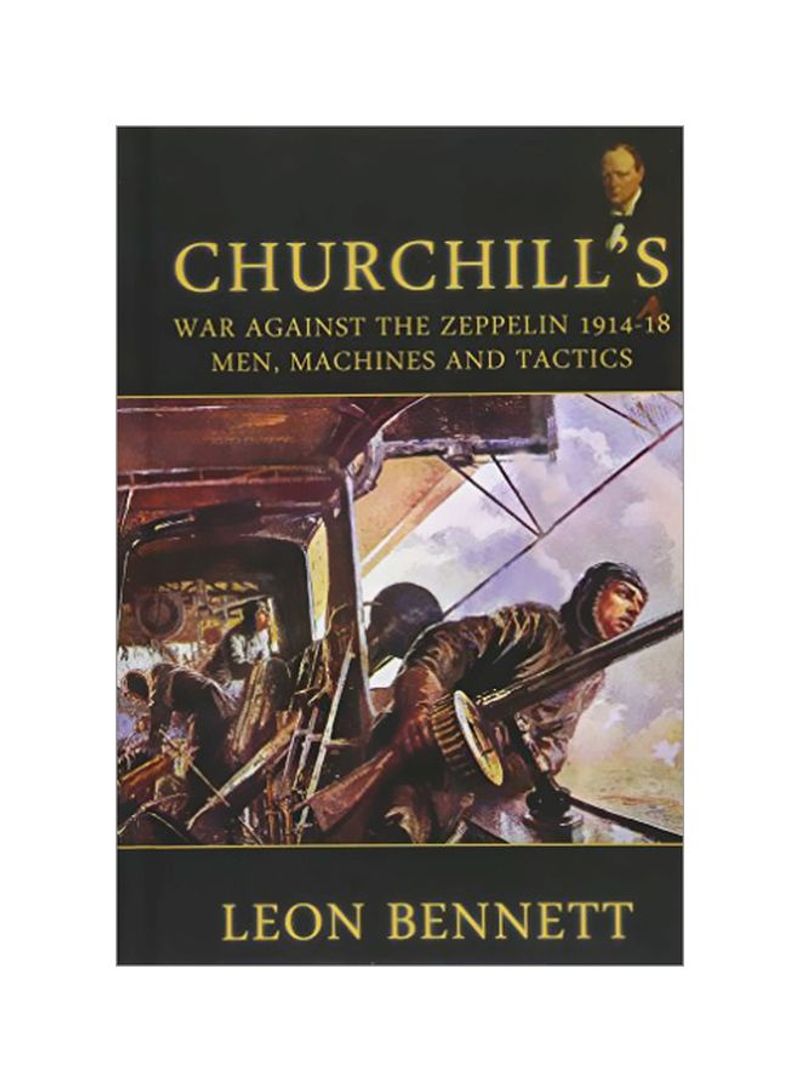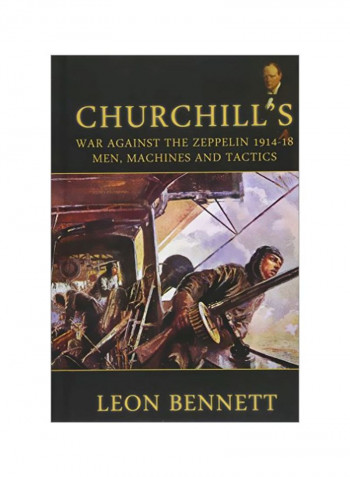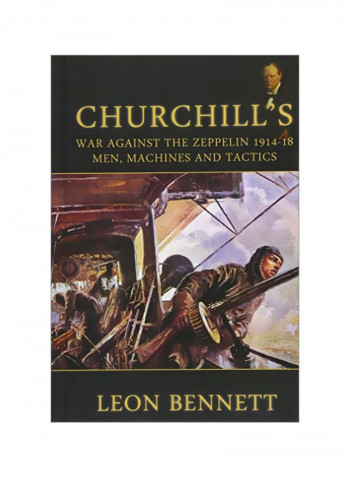Churchill's War Against The Zeppelin 1914-18 Hardcover
Recommend
Sort by
Rating
Date
Specifications
Author 1
Leon Bennett
Book Description
Over a thousand British citizens were killed and over three thousand were wounded by Zeppelin bombing during the course of World War I. In Churchill's War Against the Zeppelin 1914-18 Leon Bennett explores the development of the airship, the efforts to defend Britain against the attacks, and Winston Churchill's role in these efforts. The text is accompanied by nearly 200 illustrations. As First Lord of the Admiralty in the early years of the war, Churchill was responsible for defending Britain against all attacks, not only from the sea but also from the air. He was instrumental in proposing and sponsoring a variety of measures, including defense by carrier and by flying boat. Unfortunately, while these measures proved successful in the long run, they took too long to be fully developed in time to be effective as an immediate defense against the Zeppelin attacks. Politically weakened by the Gallipoli disaster and the Zeppelin, Churchill had to resign. It would take another war to restore his reputation. Leon Bennett has written extensively about aerial combat during World War I in his books,""Three Wings for the Red Baron"", ""Gunning for the Red Baron"" and ""The Fall of the Red Baron"" and in numerous articles. In researching and writing his books, Leon Bennett draws on a life-long interest and experience in the many facets of flying and aerodynamics. Trained as an aeronautical engineer, he spent many years as a research scientist and did ballistics research during his military service. His understanding of the Zeppelin's many virtues and drawbacks has been helped by his experiences as a glider pilot and airplane modeler.
ISBN-13
9781909982840
Language
English
Publisher
Helion & Company
Publication Date
31-Jul-15
Number of Pages
424
About the Author
Leon Bennett is a graduate of the New York University College of Engineering, with both Bachelor's and Master's degrees in Aeronautical Engineering. He continued as a research worker at the University, attaining the rank of Senior Research Scientist, and also lectured on prosthetic devices at the NYU Medical School. Upon the closing of the Engineering College, he transferred to the Veterans Administration, where his research efforts won the 1984 award for vascular research by the American Congress of Rehabilitation Medicine. His military service was spent as a researcher at the Ballistics Research Lab, at Aberdeen, MD. His research output consists of 36 articles on subjects such as insect flight, blood flow, and load dissipation by human tissue. Following retirement, he has written two highly-regarded books about World War I aerial combat, Three Wings for the Red Baron, and Gunning for the Red Baron. He has also prepared numerous how-to articles for hobby magazines featuring model aeroplanes, including Flying Models, Model Aviation and the Flying Aces Newsletter.
Editorial Review
... If I were asked to select the best book of 2015 on WWI aviation history there is little doubt that Leon Bennett's newest work would be my choice ... In all, from cover to cover, it is the `completest thing' N35551754A books history military_history_world_war_i #Null# N35551757A books history military_history_world_war_i Should Britain have entered the war in 1914? This question has recently aroused controversy. As Douglas Newton shows, it was controversial in 1914, too. This book is a compellingly written, tightly argued, deeply researched and bracingly revisionist study of the decisions that led to British intervention. Newton uproots many hardy myths and reveals the deep divisions within the political elite of a country on the brink of war." - Christopher Clark, author of The Sleepwalkers



